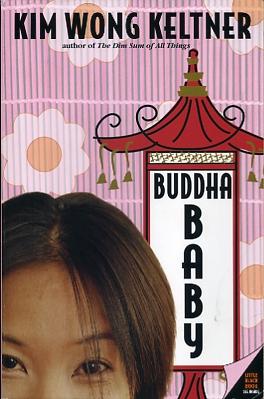By William Wetherall
First posted 5 May 2010
Last updated 7 May 2010

Kim Wong Keltner Kim Wong Keltner's quiltwork of vignettes actually covers the body and stirs the brain more than one might think from a work of fiction titled Buddha Baby. Running the stylistic gamut from Chinked-out chick-lit (if I may mimic Wang Leehom) to contemporary literature, many of the twenty-six individually titled stories could stand alone, while a few make sense only after reading others. In this sense, the book is somewhere between an anthology and a webwork novel. Buddha Baby is Keltner's second novel, following The Dim Sum of All Things (2004) and I Want Candy (2008). It was not well received by readers who viewed it as an insult to Asian Americans, men and women alike -- largely because she failed to create characters who think and act like graduates of Asian American Studies programs. While Keltner's novel may not meet the standards of the politically more correct literature written by MFA multiculturalists, she does, in her way, fight the battles of racism and sexism through characters that are credible within the parameters of her story -- about the relationship between Lindsey Owyang -- "a Chinese-American girl" (page 1) -- and Michael Cartier -- "a white guy" (page 3). "interracial hijinks""She'd become smitten with him three years ago and interracial hijinks had ensured," the narrator tells us. "But alas, a twist." (Pages 3-4)
Come to think of it, this is pretty bad writing. But it is hard to imagine a better -- if unwittingly excellent -- example of the perversity of "racial" consciousness in the United States today -- driven by education that teaches people to think in terms of "heritage" and "culture" as racial qualities. The narrator comes close to admitting this in a closely following paragraph (page 5).
Through such mechanistic and even didactic commentary peeks a certain sense of humor that is lacking in the writing of some angry Asian Americanists -- including not a few colorless people and men. While the ways in which Keltner urges Lindsey and Michael toward freedom of association and mixture may disqualify her novel as good literature, her intentions are honest, and her aims are irreproachable. |